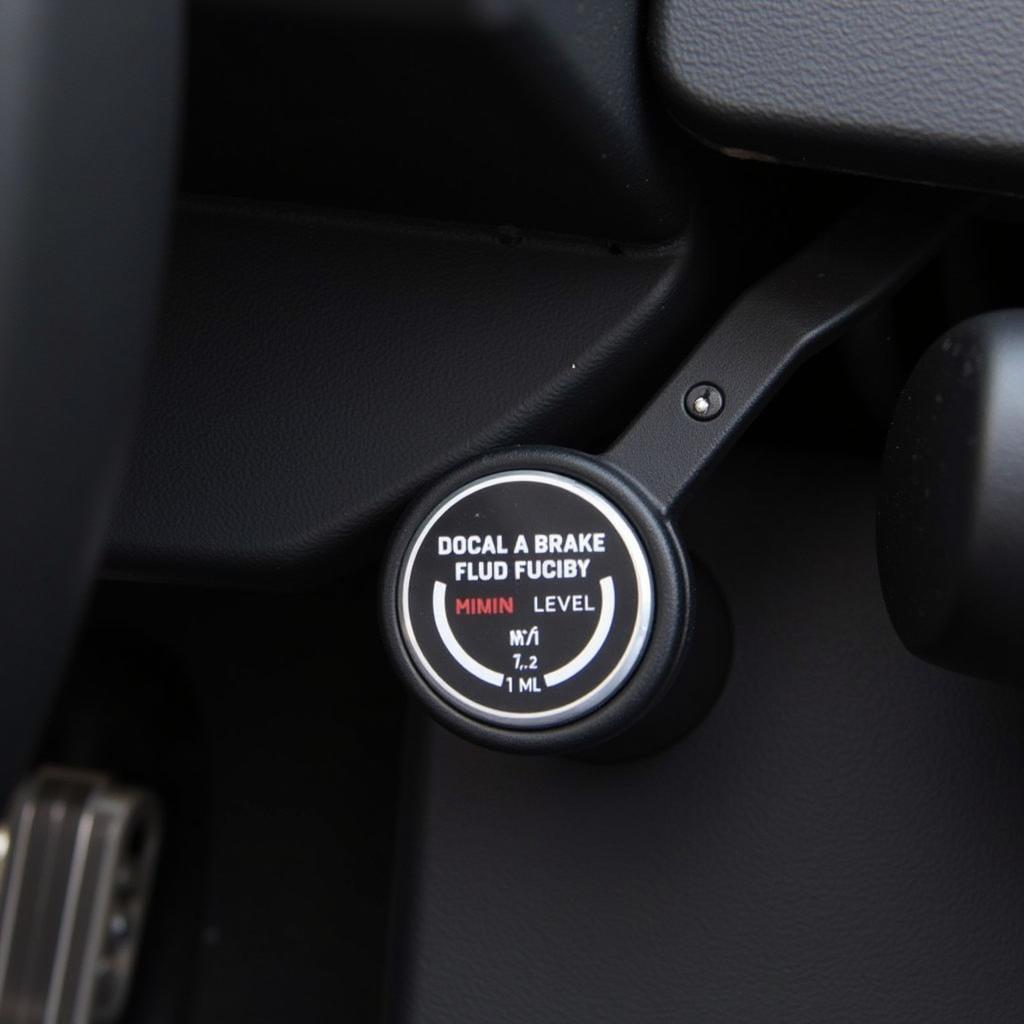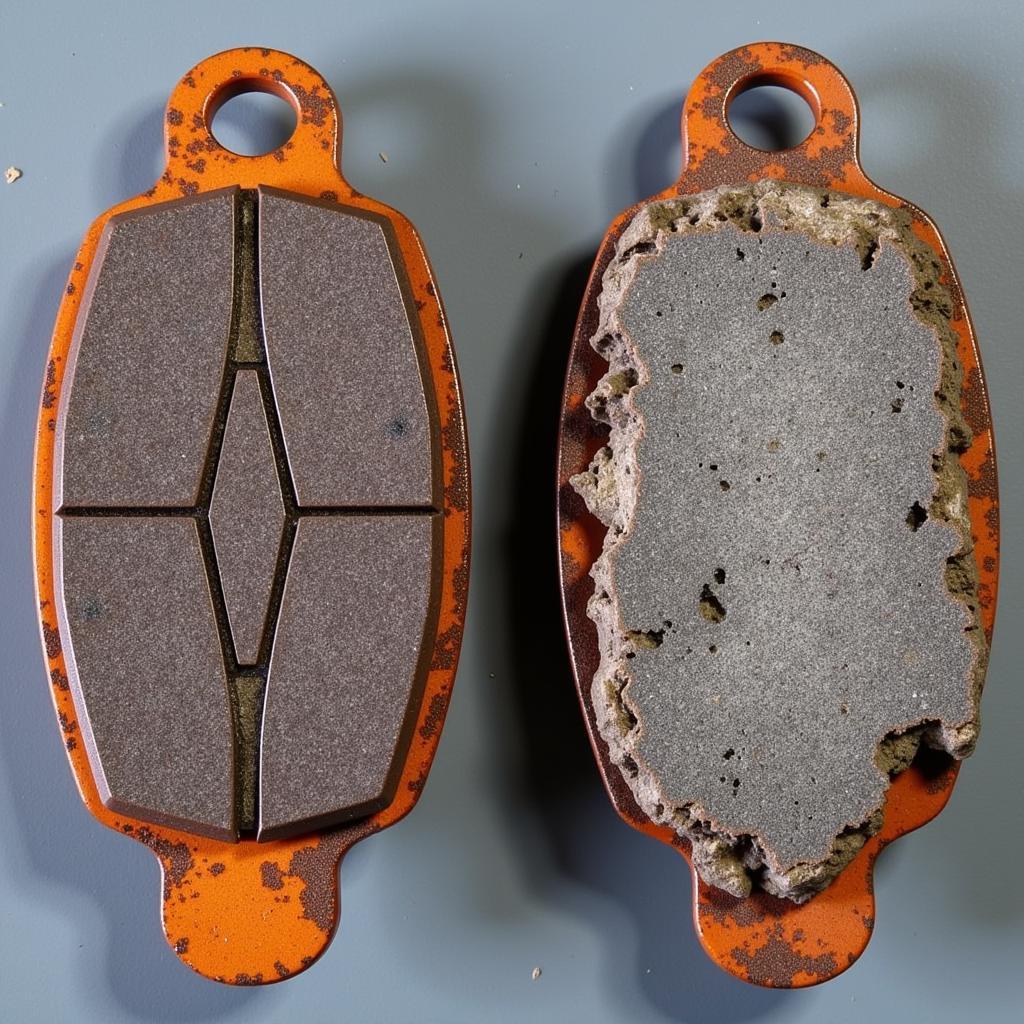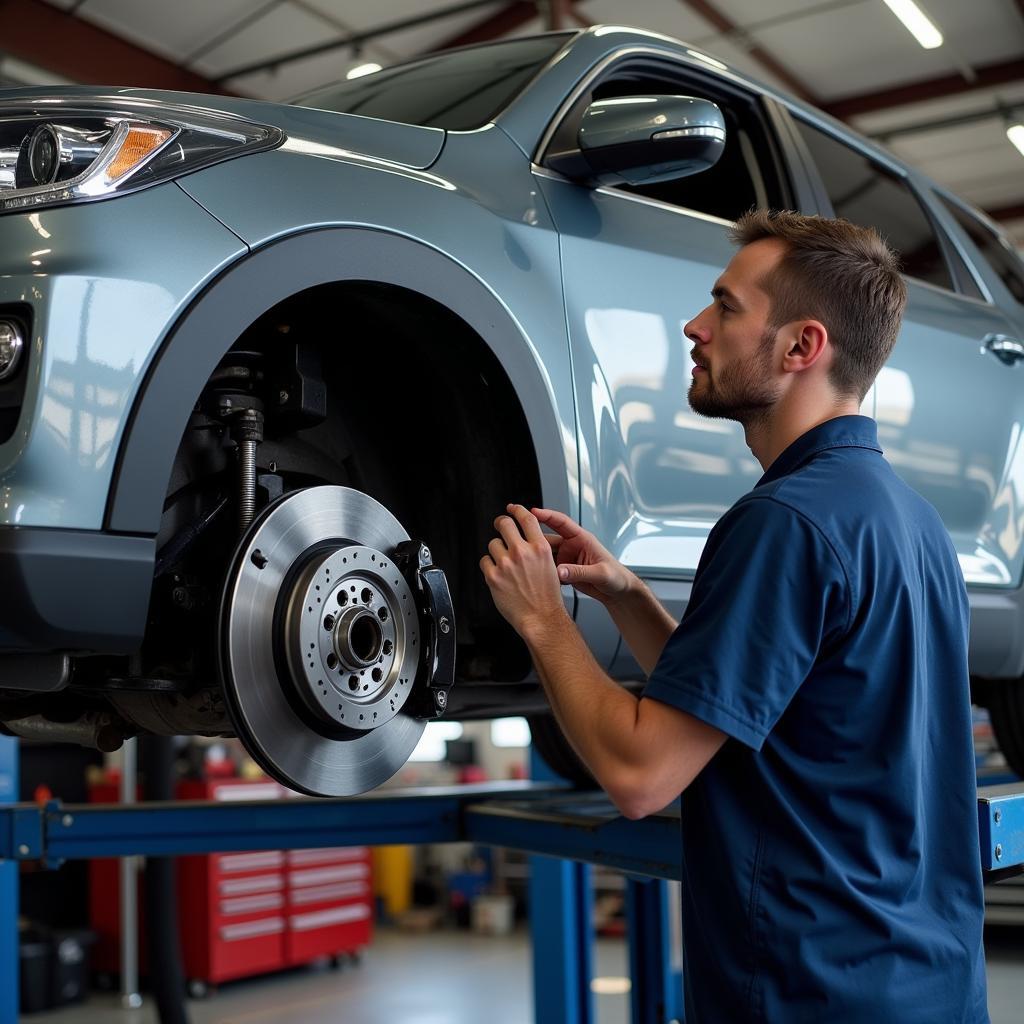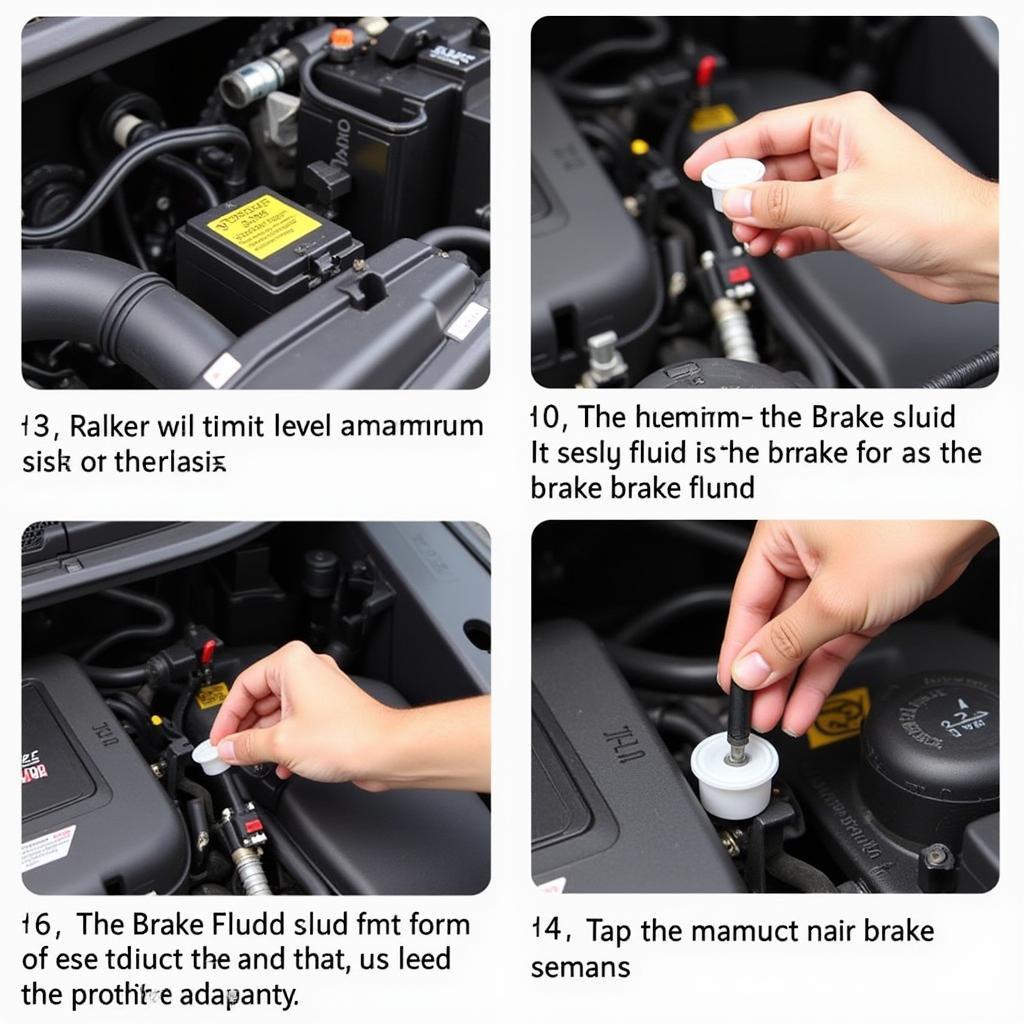The brake warning light on your 2006 Toyota Camry is one of the most important safety features on your vehicle. It’s designed to illuminate when the car’s computer detects an issue within the braking system, alerting you to a potential problem before it becomes a safety hazard. Ignoring this warning light can be dangerous, potentially leading to brake failure and an increased risk of accidents. This article explores the common reasons why your 2006 Camry brake warning light might be on and offers practical solutions to address the issue.
Understanding Your Camry’s Brake Warning System
Your 2006 Camry uses sensors within the braking system to monitor various components and their functionality. When an abnormality is detected, the brake warning light on your dashboard illuminates, signaling a potential issue.
Common Reasons for a Camry Brake Warning Light
There are several reasons why your 2006 Camry’s brake warning light may turn on:
-
Low Brake Fluid: This is one of the most common culprits. Brake fluid is essential for transmitting the force from your foot on the brake pedal to the brake calipers, which then squeeze the brake pads, stopping the car. If the fluid level is low, it could indicate a leak in the system.
-
Worn Brake Pads: Brake pads naturally wear down over time due to friction. When they reach a certain thickness, the brake pad wear sensor will trigger the warning light, signaling it’s time for a replacement.
-
Faulty Brake Light Switch: Your brake lights and brake warning system often share a common switch. If this switch malfunctions, it can lead to both your brake lights not functioning properly and the warning light illuminating.
-
ABS Problem: Your Camry is equipped with an Anti-lock Braking System (ABS). If the ABS module or a wheel speed sensor malfunctions, it can trigger the brake warning light.
-
Parking Brake Engaged: While a simple reason, sometimes the parking brake might not be fully disengaged, causing the light to stay on.
 Brake Fluid Reservoir
Brake Fluid Reservoir
Troubleshooting Your Camry’s Brake Warning Light
Before you start any troubleshooting, ensure the parking brake is fully released. If the light persists, here are some steps to take:
-
Check the Brake Fluid: Carefully open the brake fluid reservoir (refer to your owner’s manual for location). If the fluid level is below the “MIN” mark, add the appropriate DOT 3 or DOT 4 brake fluid as recommended in your owner’s manual. Important: If you need to add brake fluid frequently, there’s likely a leak in the system requiring immediate professional attention.
-
Inspect the Brake Pads: You can visually inspect the brake pads through the spaces between the wheel spokes. If the pad material is less than 1/4 inch thick, it’s time for a replacement.
 Worn Brake Pads
Worn Brake Pads
- Check for Leaks: Inspect the area around the brake master cylinder, brake lines, and near the wheels for any signs of brake fluid leaks. Leaking fluid is a serious issue and requires immediate professional attention.
Important: If you suspect a brake fluid leak, worn brake pads, or an issue with the ABS system, it’s strongly advised to take your Camry to a qualified mechanic for a thorough inspection and repair. Tampering with the braking system without proper knowledge can be dangerous.
When to Seek Professional Help
While some issues with your Camry’s brake warning light might seem straightforward to address, it’s crucial to understand that the braking system is complex and critical for your safety.
Here are some situations where you should always consult a professional:
- You are not comfortable working on your car’s braking system.
- You suspect a brake fluid leak.
- The brake warning light remains on after adding brake fluid and inspecting the pads.
- You notice any unusual noises or sensations when braking.
- Your brake pedal feels spongy or goes all the way to the floor.
 Brake Inspection
Brake Inspection
Conclusion
The brake warning light in your 2006 Toyota Camry is a critical safety feature. Ignoring it can lead to serious consequences. By understanding the common reasons behind a lit brake warning light and knowing when to seek professional help, you can ensure the safety and reliability of your vehicle’s braking system.

